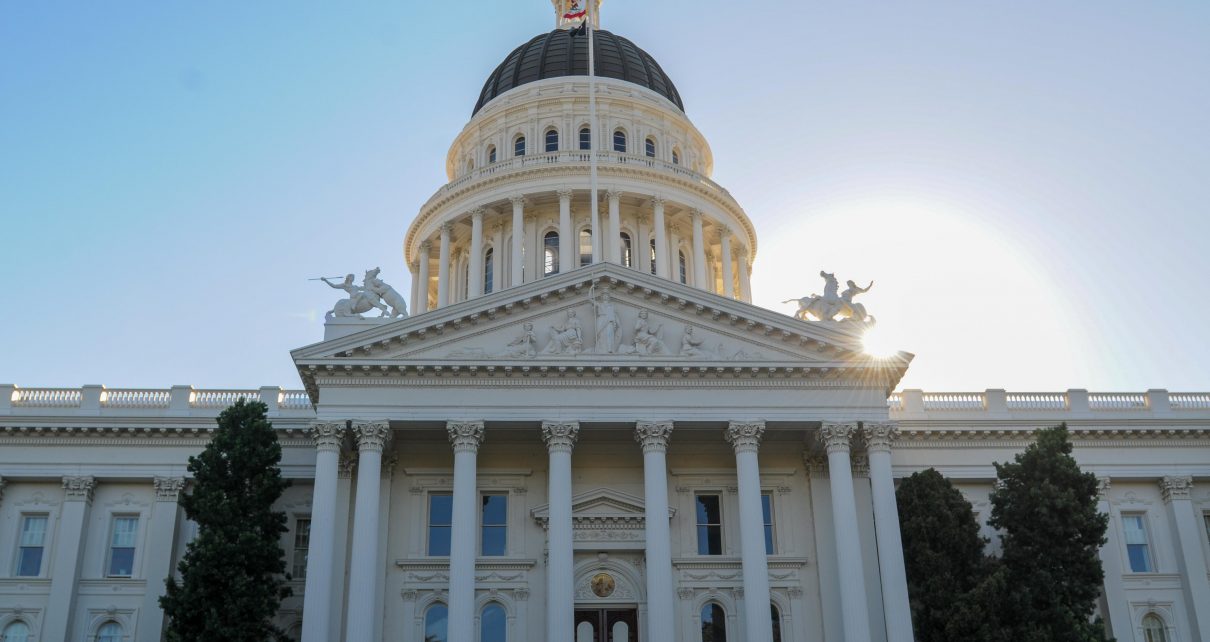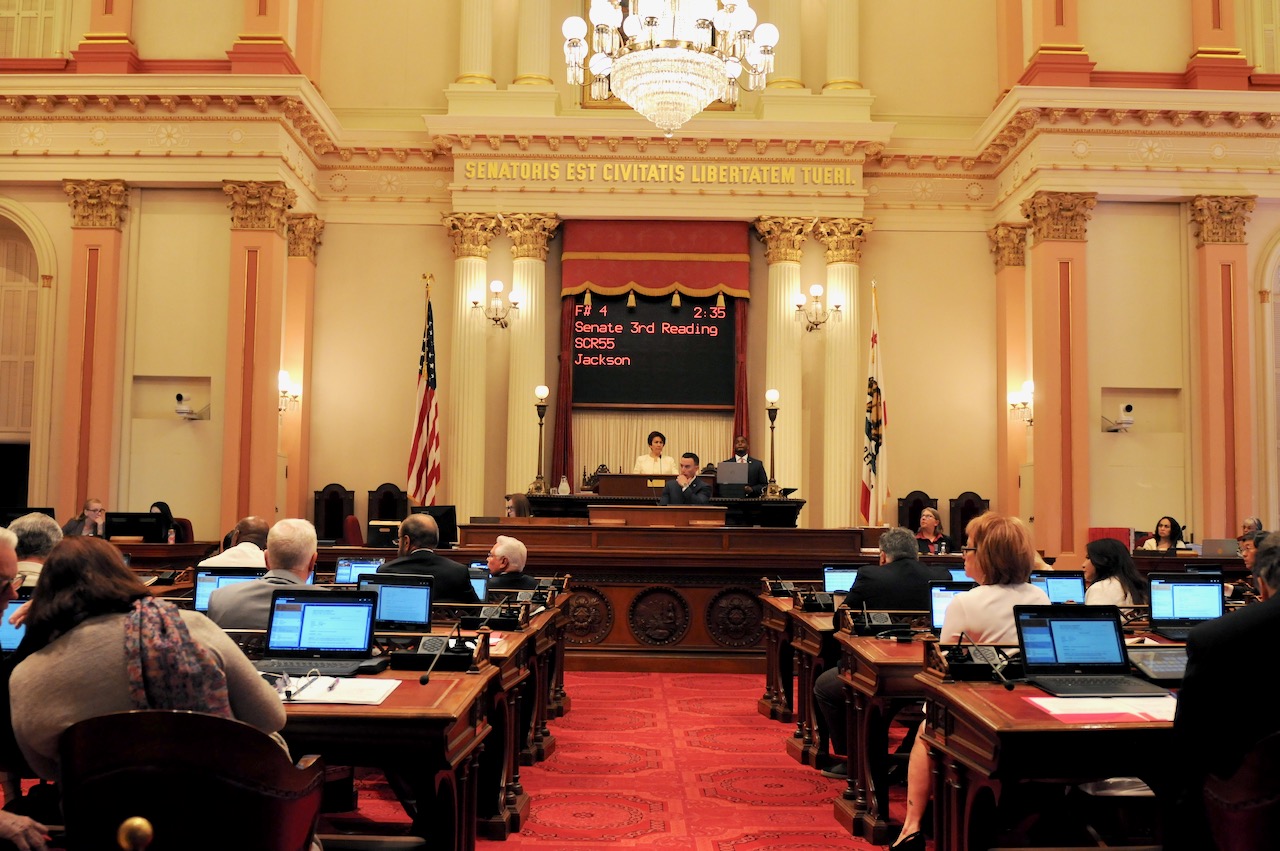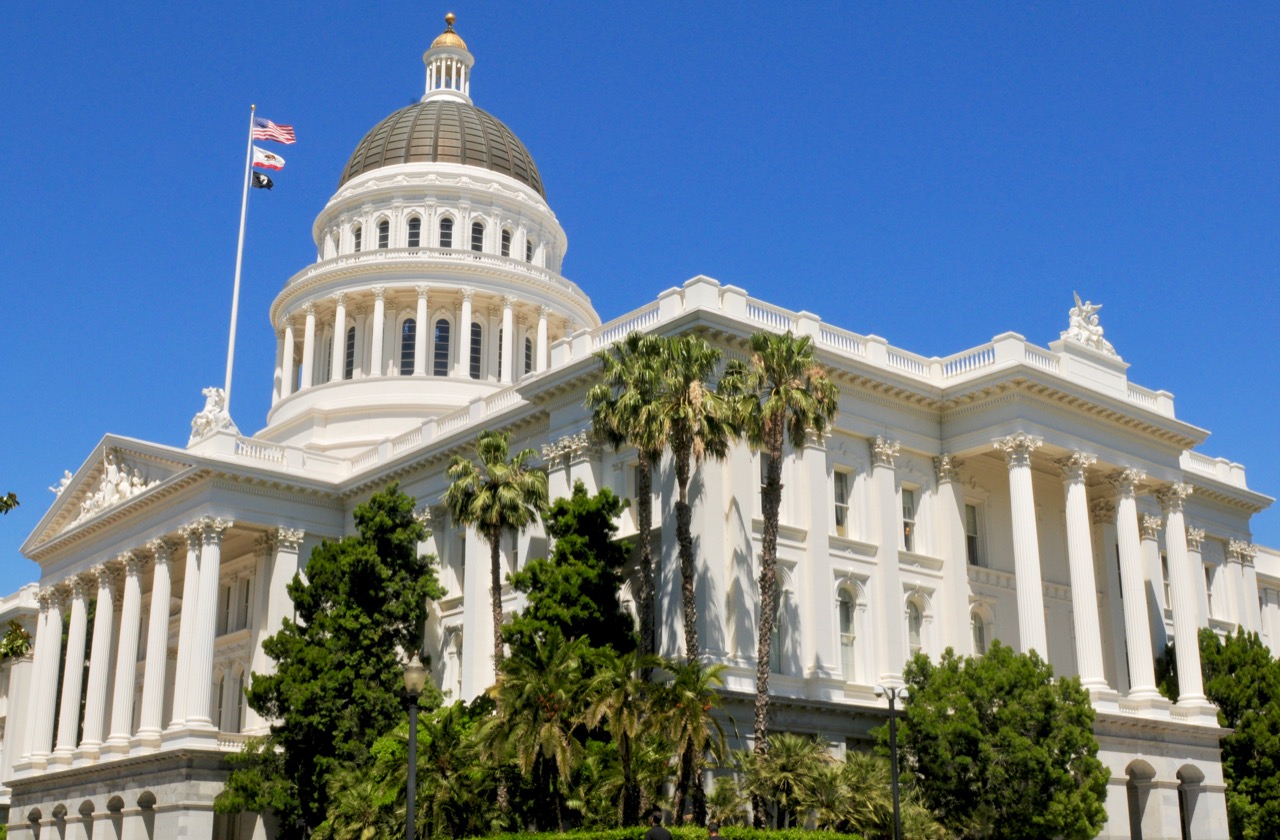
California State Capitol. (Photo: Kevin Sanders for California Globe)
Frequently Asked Questions about Exhausting Administrative Remedies in California
How have California courts viewed this legal doctrine?
By Chris Micheli, April 8, 2024 2:30 am
What does “exhausting administrative remedies” mean? According to California Office of Legislative Counsel, the “exhaustion of remedies” principle is a fundamental concept of administrative law governing the relationship between agencies and courts. Essentially it means that individuals who disagree with agency actions must pursue available agency procedures for addressing those concerns before they may sue the agency in court
How have California courts viewed this legal doctrine? It requires individuals to raise concerns about proposed agency actions to the agencies themselves, in the first instance, rather than to the courts. After doing so, the individual can file a civil lawsuit. (Plantier v. City of Ramona Municipal Water Dist. (2019) 7 Cal.5th 372, 382-383, citing Coachella Valley Mosquito & Vector Control Dist. v. California Public Employment Relations Bd. (2005) 35 Cal.4th 1072, 1080).
Are there instances where state law requires exhaustion of administrative remedies? Yes, for example, Labor Code Section 3085 provides: “No person shall institute any action for the enforcement of any apprentice agreement, or damages for the breach of any apprentice agreement, made under this chapter, unless all administrative remedies provided by this chapter have first been exhausted.”
Similarly, Unemployment Code Section 3264 states, in part: “No such petition may be filed, however, until the employee exhausts the administrative remedies provided for in this division, nor may any other action be commenced by an employee upon a denial of his claim by his employer or insurer, as the case may be, other than that prescribed herein.”
Are there instances where state law provides that administrative remedies do not have to be exhausted before filing a lawsuit? Yes, for example, Elections Code Section 17 specifies that “The Secretary of State shall establish and maintain administrative complaint procedures, pursuant to the requirements of the federal Help America Vote Act of 2002 (52 U.S.C. Sec. 21112), in order to remedy grievances in the administration of elections. The Secretary of State shall not require that the administrative remedies provided in the complaint procedures established pursuant to this section be exhausted in order to pursue any other remedies provided by state or federal law.”
Similarly, Financial Code Section 23064.6 provides: “The rights, remedies, and penalties established by this division are cumulative to the rights, remedies, or penalties established under other laws. It is not necessary to exhaust administrative remedies in order to pursue the civil remedies provided for in this act.” Health and Safety Code Section 112275 specifies: “A person who has exhausted all administrative remedies available within the department and who is aggrieved by a final decision or order is entitled to judicial review pursuant to this chapter.”
- Costs of Partition in California - February 3, 2026
- Rights in Eminent Domain Authority - February 2, 2026
- Unclaimed Property Law General Provisions - February 2, 2026





I am the moving party in an action before the United States District Court. There are many tenacles in the action, but most relevant here is the court’s disposition of my lawsuit against the city of Los Angeles, by Judgment that fraudulently circumvents the substantial and procedural mandates under C.C.C.P. 1094.5. Instead of the trier of fact concurring with 1094.5, as affirmed under Strumsky v San Diego County Employees Retirement Association, 112 Cal Rptr 805, 807, 11 Cal 3d 28, 520 P. 2d 29 (Apr 24, 1974), the judicial officer trier of fact rendered an adverse judgment, where the judicial officer substitutes the municipal defendants in adjudicating the government claims. Leaving the record of the case brought under mandamus, void of an “Independent judicial review of the municipalities decision of the claims of civil liability. Instead, the municipality and the judicial officer conspiracy terminated the claims under Federal Rules of Civil Procedure, rule 12b (1) and 12b (6), void of the judicial review mandated under C.C.C.P. 1094.5. This is an active case – a motion for relief from the judgment, pursuant to Federal Rules of Civil Procedure, 60b (3), 60b (4) and 60b (6). Before what appears to be a biased judge, who has failed to adjudicate the Motion for Default Judgment, pending before the judge since January 7, 2025, where the subject motion has been pending since September 26, 2024. e.g., Williams v City of Los Angeles, no. 2:24-cv-08458-TJH-JC. I have since penned a letter to the presiding judgment that the clerk actually filed, styling the letter as the Motion for Default Judgment and again, pending without a defense or disposition since January 7, 2025. The letter is comprehensive discussing the since default on claims. Any assistance or referral swaying the court to enforce my civil right to the judgment by default is appreciated.